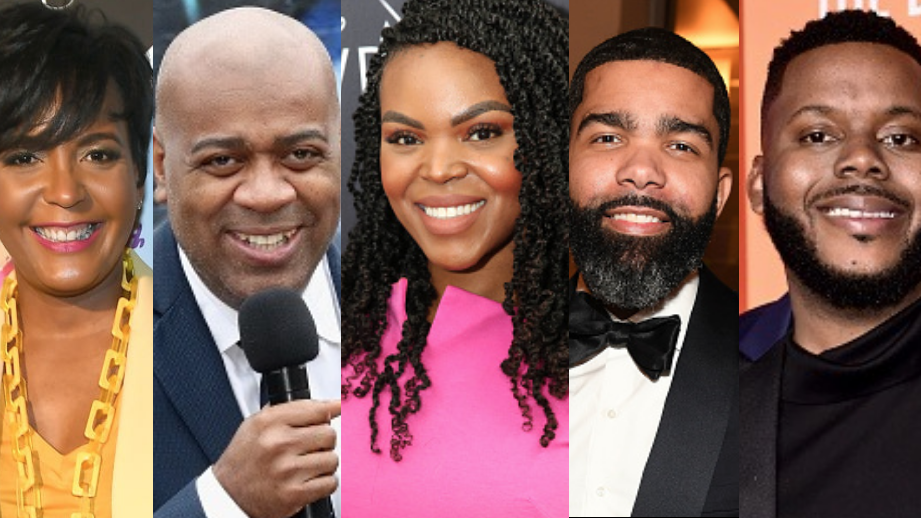Newark Mayor Ras Baraka, Los Angeles Mayor Eric Garcetti, Compton Mayor Aja Brown and others have announced they have created a coalition of mayors interested in exploring the feasibility of a guaranteed income program.
The Mayors for a Guaranteed Income coalition already has 11 members and said in a statement they are committed to realizing "Reverend Dr. Martin Luther King Jr.’s economic dream" of cash-based policies and exploring the possibility of guaranteed income programs for the more than 7 million American residents of their cities.
Garcetti, Baraka and Brown are being joined by Stockton, California Mayor Michael Tubbs; Jackson, Mississippi Mayor Chokwe Antar Lumumba; St. Paul, Minnesota Mayor Melvin Carter; Shreveport, Louisiana Mayor Adrian Perkins; Oakland Mayor Libby Schaaf; Tacoma, Washington Mayor Victoria Woodards; Columbia, South Carolina Mayor Stephen Benjamin; and Atlanta Mayor Keisha Lance Bottoms.
“People do not have enough income to take care of basic needs. These conditions were unacceptable before COVID-19 struck, and they are intolerable now. No person should have to deal with these stresses. That is why I remain committed to pushing for a guaranteed income, another step in our work to end poverty in Newark, and to create a more equitable and empowered city,” Baraka said in a statement to Blavity.
The statement notes that one key facet of King Jr.’s plans was guaranteed income for all Americans as part of a larger effort to end poverty in the United States.
The coronavirus pandemic has exacerbated already record-high income inequality. According to the Department of Labor, the federal minimum wage has not changed from $7.25 per hour since July 2009. That is about $15,000 a year for someone working 40 hours a week and nearly $10,000 less than the federal poverty level for a family of four, according to Reuters.
More than 45 million people have filed for unemployment benefits since the onset of the pandemic, and state unemployment systems have been overwhelmed by a deluge of claims since the economy was effectively shut down because of COVID-19, CNBC reports.
As part of the coronavirus relief bill, Congress required state governments to give out $600 in weekly unemployment benefits on top of regular state unemployment benefits, but that program will end at the end of the month. Republicans in Congress have balked at the idea of extending the program, even as the economy continues to falter in its reopening.
The pandemic has also kickstarted an eviction wave that is threatening the housing security of millions.
According to the coalition's statement, the guaranteed income would be a monthly cash payment given directly to individuals, which would empower "recipients to address their most urgent needs and [provide] a cushion for unpredictable expenses, external shocks, and volatility."
The guaranteed income would supplement existing social services instead of replacing them.
“We are living in uncertain times with even greater widening economic disparity as a result of COVID-19. As mayors, our problems may look different from town to town, but we are united in our duty to ensure the economic security of our residents and it is unacceptable that people who are working two and three jobs can’t afford basic necessities. We encourage all U.S. mayors to join us in strengthening our communities by supplementing the existing social safety net and driving forward this powerful tool for racial, gender, and economic equality,” said Tubbs, who founded the coalition.
Tubbs told Blavity that this issue is particularly pertinent for Black mayors and leaders trying to address the structural challenges holding their Black citizens back.
"We are battling the twin pandemics of structural racism and COVID-19, which illustrates how deadly structural racism can be. In this moment, it is vital to have those in leadership positions with lived experiences with these ills, in order to enact the policies needed to create a more perfect union."
In its statement, the group said nearly 40% of Americans cannot afford a single $400 emergency and that there is still widespread pay disparity by race and sex.
"The median white worker made 28% more than the typical Black worker and 35 percent more than the median Latinx worker in the last quarter of 2019," the statement read.
The Brookings Institute reported in February that the median wealth of white families in 2016 was $171,000, while the median for Black families was $17,150.
“Too many Americans are one missed paycheck away from an eviction or being unable to put food on the table — and that was true long before COVID-19. When this public health crisis ends, we have to refuse a return to normal in favor of a future better than normal ever was, and Mayors for a Guaranteed Income does just that by focusing on meaningful and innovative solutions to economic insecurity, inequality, and poverty,” Garcetti said in a statement to Blavity.
There are currently a number of nonprofits and private groups working on similar plans. The Center for Employment Opportunities recently unveiled a program that provides financial support to formerly incarcerated people.
Countries like Finland, Kenya, Canada, Brazil, Germany, Iran, Namibia and India have tried to implement guaranteed income programs with some success. Alaska has a widely touted program that has been in place since 1982, which gives every citizen up to $2,000 annually from the Alaska Permanent Fund, an investment fund financed by oil revenue that is owned by the state.
According to Vox, studies have shown the program in Alaska did not disincentivize work and led to higher fertility rates and decreased poverty levels.
In North Carolina, the Eastern Band of Cherokee Indians Casino Dividend has provided tribal members with up to $6,000 each year from casino revenues since 1997. Vox reports the program has led to decreases in addiction and crime as well as improvements in education and mental health.
The proposal of guaranteed income has gained national prominence in recent months in part because of former presidential candidate Andrew Yang, who ran on a platform offering a monthly $1,000 universal basic income that he called the "freedom dividend."

